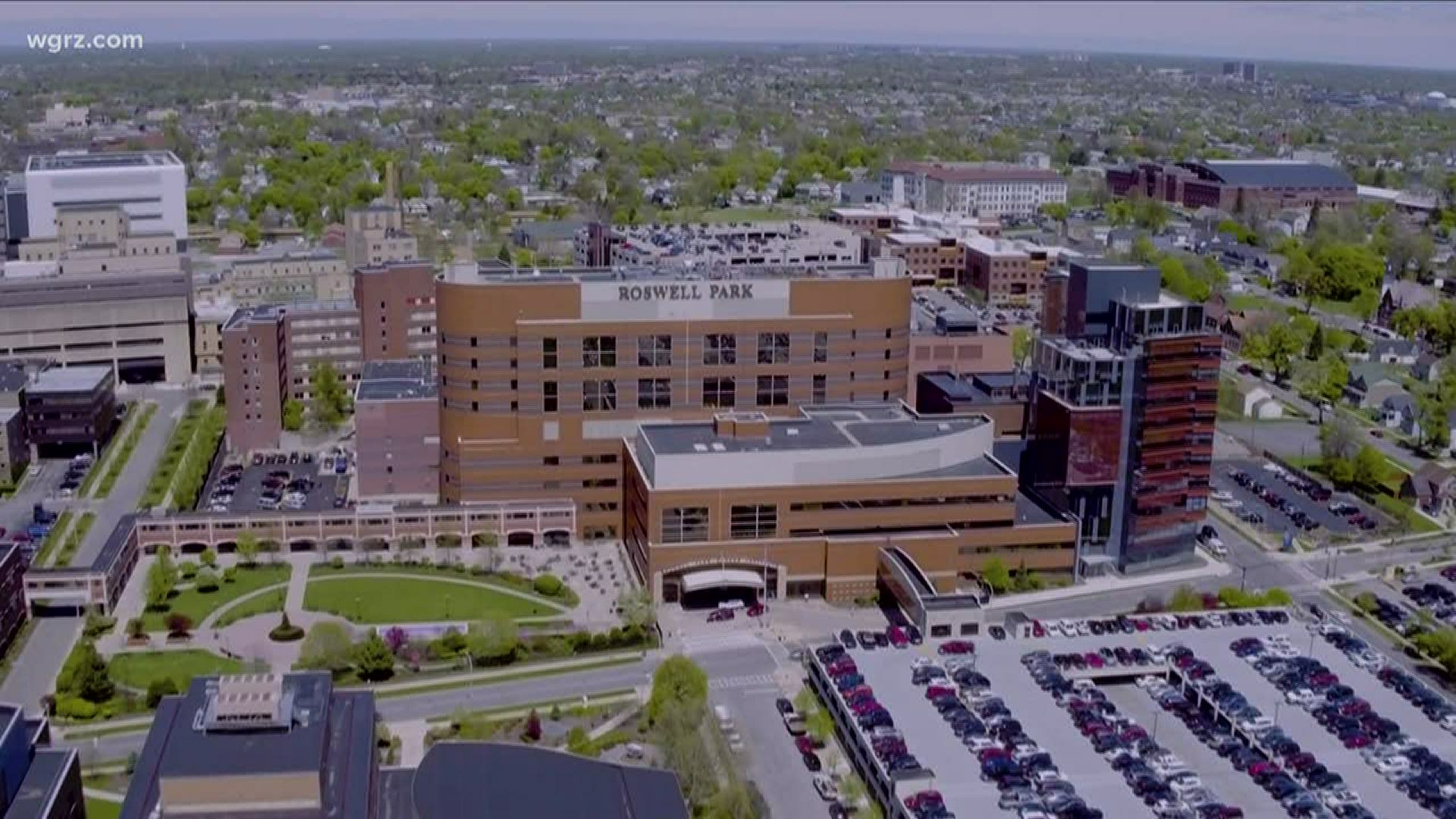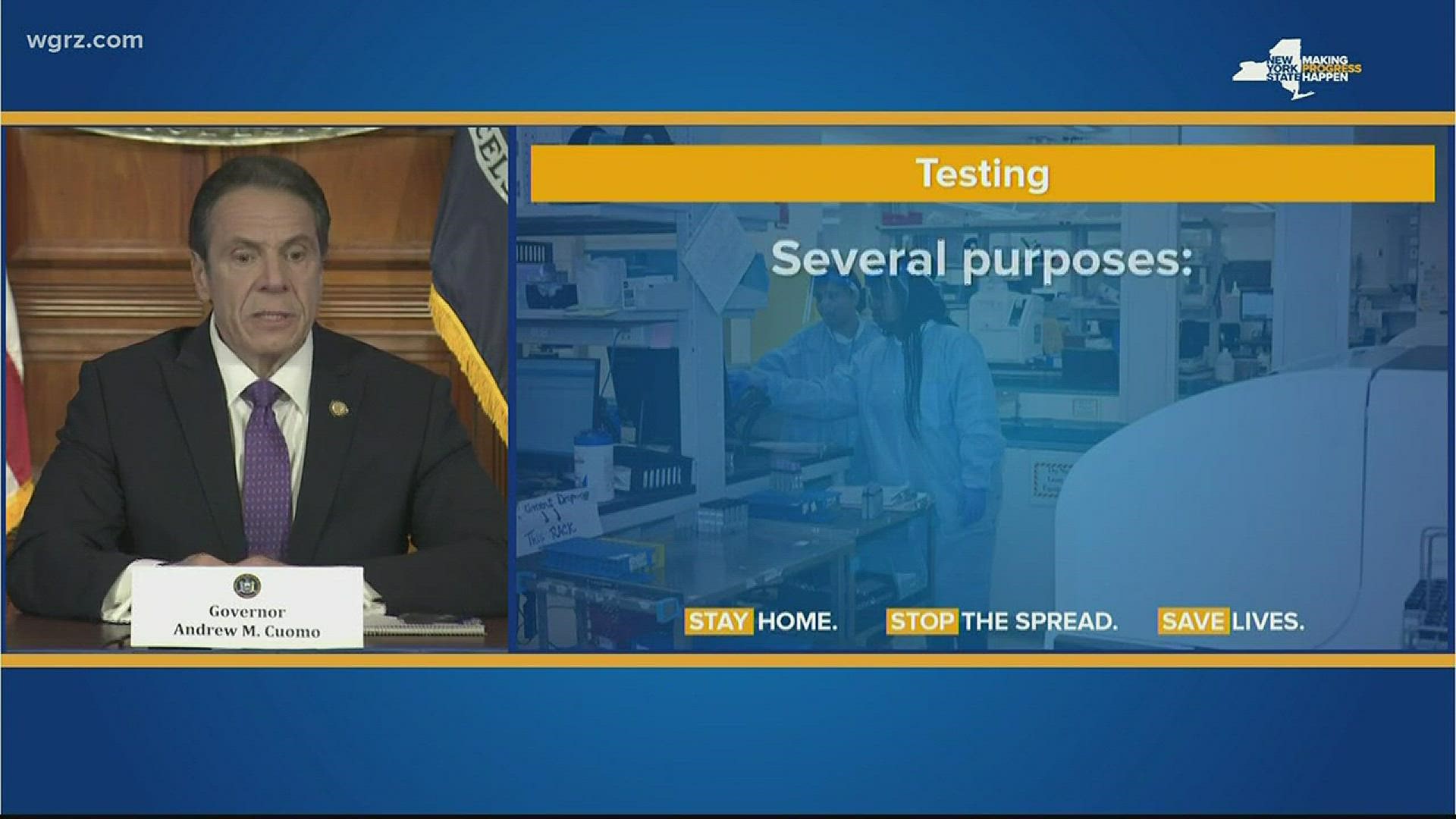BUFFALO, N.Y. — Doctors from Roswell Park, University at Buffalo and Catholic Health have announced a research study that experts hope will provide information on how to better predict who could react to the coronavirus.
The study is called the Western New York Immunogenomic COVID-19 study.
The study, which could begin as early as next week, would analyze blood specimens from people who have coronavirus. It's hoped that the study will be complete in six months to provide healthcare professionals and patients critical information.
"Could we predict which group people are going [to be affected by the virus] if they come in contact with someone with the virus?" Dr. Kunle Odunsi of Roswell Park asked during a virtual press conference today.
Dr. Carl Morrison of Roswell Park said such predictions and modeling is already done with cancer research. Morrison says information from the study could be applied to the question of when economies should reopen.
"This would be truly monumental not only as a community but the entire world," Cassagnol said. "We need to do better for our community in terms of [prediction]."
Thermo Fisher Scientific will provide supplies and technology to support the study.
Odunsi said the 11-Day Power Play has donated $150,000 to fund part of the study, which is expected to cost $1 million.
If you're interested in learning more about the study, you can visit Roswell Park website.
RELATED: 11 Day Power Play to battle COVID-19
Human coronaviruses are usually spread through...
- The air by coughing or sneezing
- Close personal contact, such as touching or shaking hands
- Touching an object or surface with the virus on it, then touching your mouth, nose or eyes before washing your hands.
Help stop the spread of coronavirus
- Stay home when you are sick.
- Eat and sleep separately from your family members
- Use different utensils and dishes
- Cover your cough or sneeze with your arm, hot your hand.
- If you use a tissue, throw it in the trash.
Lower your risk
- Wash your hands often with soap and water for at least 20 seconds. If soap and water are not available, use an alcohol-based hand sanitizer.
- Avoid touching your eyes, nose, and mouth with unwashed hands.
- Avoid close contact with people who are sick.
- Clean and disinfect frequently touched objects and surfaces.
- If you are 60 or over and have an underlying health condition such as cardiovascular disease, diabetes or respiratory illnesses like asthma or COPD, the World Health Organization advises you to try to avoid crowds or places where you might interact with people who are sick.


